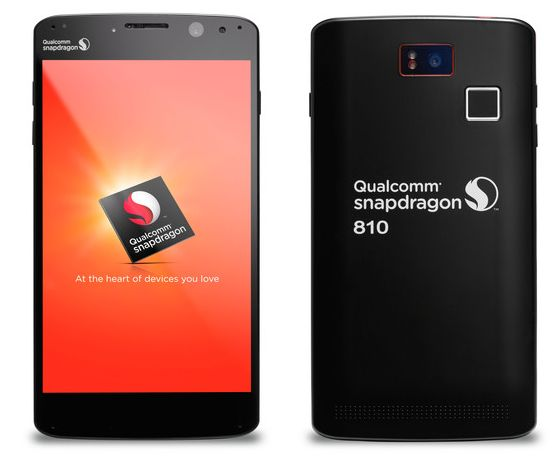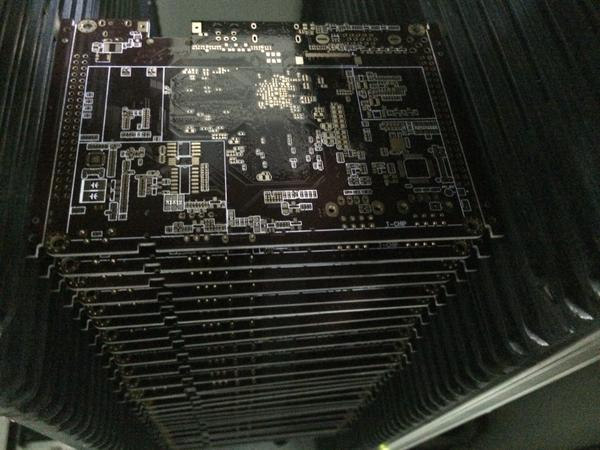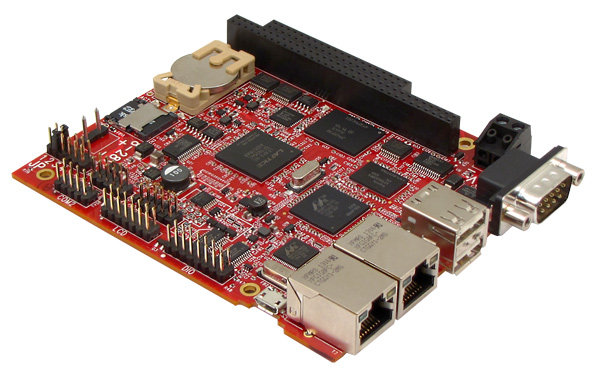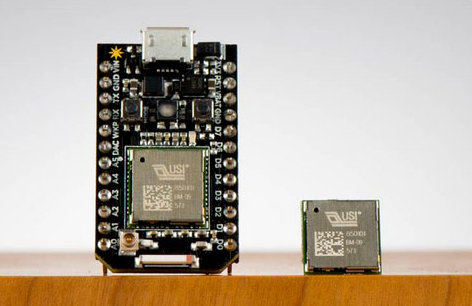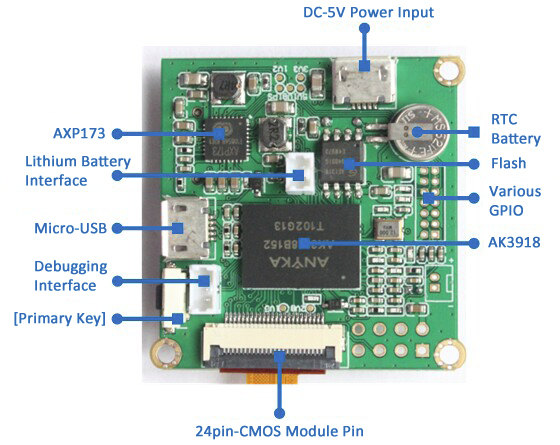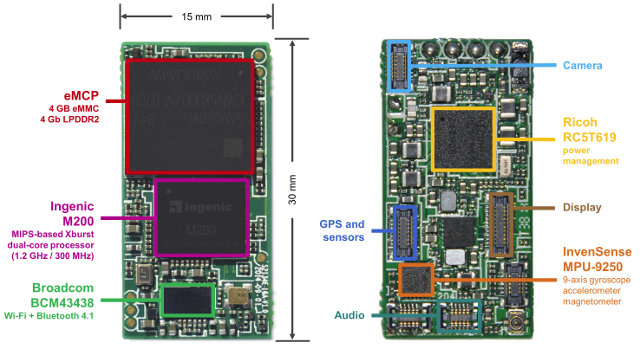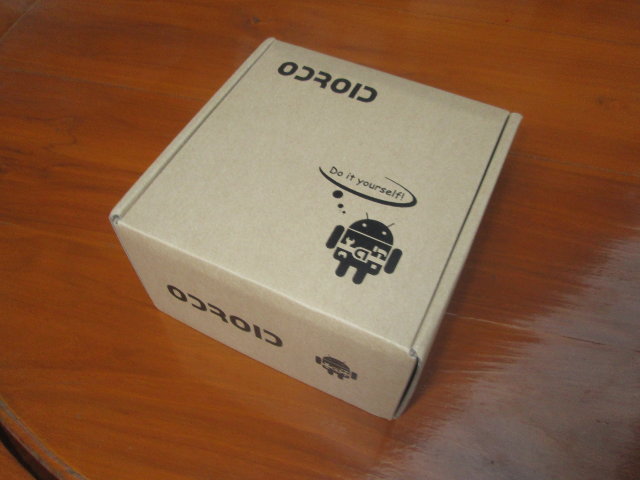Intrinsyc has recently announced availability for three development platforms based on Qualcomm Snapdragon 810 ARM Cortex A53/A57 processor, namely a smartphone Mobile Development Platform (MDP), a tablet MDP, and a DragonBoard development kit integration Open-Q 8094 system-on-module, making these one of the first ARM64 development platforms available to individual developers, or at least small software development companies (approved by Qualcomm). All three platforms will run Android 5.0 Lollipop. Intrinsyc Snapdragon 810 MDP Smartphone Intrinsyc MDP/S specifications: SoC – Qualcomm Snapdragon 810 (8994) 64-bit octa-core processor with 4x Cortex A57 cores, 4x Cortex A53 cores, Adreno 430 GPU, and Hexagon V56 DSP System Memory – 3 GB LP-DDR4 Storage – 32 GB eMMC 5.0 micro SD slot (under battery door) Display – 6.17” QHD (2560×1600) 490ppi, 10-finger multi-touch capacitive touchscreen Video Output – micro HDMI type D Audio Headset jack with ANC support 8 microphones (2 analog/ 6 digital) with support […]
Linaro 14.11 Release with Kernel 3.18, Android 5.0, & Ubuntu Utopic. Debian 8.0 Gets ARM64 Port
Linaro 14.11 has been released with Linux kernel 3.18-rc5 (baseline), Linux 3.10.61 & 3.14.25 (LSK, same versions as last month), and Android 4.4.2, 4.4.4, and for the first time Android 5.0 Lollipop. There’s also been some news with regards to Linux desktop distributions, as Ubuntu baseline has been upgraded to Utopic (14.10), and Debian 8.0 (Jessie) will officially support ARM64 with 93% of packages built as of November 5th. Android Lollipop images are said to be built for TC2, Juno, Nexus 7, Nexus 10, and FVP models, but I could not find the images. Finally, it’s the first time I’ve noticed Hisilicon X5HD2 development board with a dual core Cortex A9 processor, but apparently it’s the same as Hi3716cv200. Here are the highlights of this release: Linux Linaro 3.18-rc5-2014.11 updated GATOR to version 5.20 updated topic from Qualcomm LT (include IFC6410 board support) updated integration-linaro-vexpress64 topic by ARM LT (FVP […]
Firefly-RK3288 Development Board in Mass Production, Selling for $140
Firefly-RK3288 development board has been an interesting, yet confusing story, at least to me. We’ve first heard about the Firefly board on July, but I was privately told in September that the board would only be sold in China by a T-Chip sales person, only to see it become available for $189 on Ebay, as well as on Taobao a few days later. But those first boards may have only been engineering sample, or more likely from a limited trial runs, as the company has now announced mass production had started. Let’s refresh our memory with the specifications: SoC – Rockchip 3288 quad core ARM Cortex A12 / A17 up to 1.8 GHz with Mali-T764 GPU supporting OpenGL ES 1.1/2.0 /3.0, and OpenCL 1.1 System Memory – 2G DDR3 Storage – 16 GB eMMC flash + micro SD slot Video Output HDMI 2.0 up to 3840×2160@60p VGA out (D-SUB connector) Dual MIPI, Dual LVDS and and […]
Technologic TS-7250-V2 Industrial Grade Embedded Computer Features Marvell PXA166/PXA168 Processor
Technologic Systems, as US based embedded systems solutions company, has announced availability of their TS-7250-V2 industrial grade PC/104 single board computer powered by Marvell PXA166 or PXA168 ARMv5 processor, with 512 MB RAM, 2GB eMMC SLC flash, single or dual Ethernet, and an optional Lattice FPGA with up to 17k LUT (Look-up Tables) among other features. They also have two enclosures namely TS-ENC720 (1x RJ45 port), and TS-ENC720-2ETH (2x RJ45 ports) for the boards. TS-7250-V2 technical specifications: Processor (one of the two) Marvell PXA166 Sheeva ARMv5 processor up to 800 MHz Marvell PXA168 Sheeva ARMv5 processor up to 1066 MHz FPGA – 17 KLut Lattice LFXP2-8E FPGA System Memory – 512 MB RAM Storage – micro SD card socket + optional 2GB eMMC flash + optional full size SD card socket Connectivity – 1x or 2x 10/100 Ethernet ports, USB – 2x USB HS host ports, 1x micro USB device […]
Spark Photon is a $19 Hackable IoT Wi-Fi Board
Spark Core is a popular Wi-Fi module for the internet of things with a community of over 20,000 developers, but at $39 it may have started to feel a little expensive compared to the new IoT Wi-Fi modules such as ESP82666 or xWiFi, so the company has unveiled a new Wi-Fi board called Photon that’s smaller, better, and cheaper. Let’s compare Spark Core with the new Spark Photon. Feature Spark Core Spark Photon Wi-Fi Support 802.11 b/g 802.11 b/g/n Wi-Fi Setup Smart Config Soft AP Wireless Module TI CC3000 Broadcom BCM43362 MCU STM32F103 STM32F205 MCU Speed 72 MHz 120 MHz Flash Memory 128 KB 1 MB RAM 20 KB 128 KB GPIO 18 UART (Serial) Yes JTAG Yes I2C Yes SPI Yes ADC Yes DAC No Yes CAN No Yes VBAT pin exposed No Yes Wakeup pin exposed No Yes Price $39.00 $19.00 So beside slashing the price by 50%, […]
Linux based BPI D1 HD Camera Module Features Anyka AK3918 ARM9 Processor
SinoVoIP BPI-D1 is a tiny 720p30 camera module running Linux, and powered by Anyka AK3918 ARM9 processor. It’s a standalone module that can be powered by micro USB (5V), or an external Lithium battery, and it also includes various GPIOs, a micro USB interface, a micro SD slot to boot Linux, optional Wi-Fi connectivity, and more.. BPI D1 specifications: Processor – Anyka AK3918 ARM926EJ processor @ 400 MHz System Memory – 64MB DDR2 Storage – 16 MB SPI Flash + micro SD flash up to 32GB. Camera: CMOS Image Sensor 720p @ 30fps, visible light with 940 nm two-way infrared lens filter, with infrared night vision function Lens – M7*P0.35 EFL=3.0mm/F.NO=2.8/View Angle=60° Video Recording – H.264 / AVI hardware encoding at 720p 30fps for up to 120 hours of video data on a 32GB micro SD card Audio Formats – MP3/WMA/AAC Audio Input – Microphone Connectivity – 802.11 b/g/n (AP […]
Ingenic Unveils Newton2 Platform for Wearables with M200 Dual Core SoC
Ingenic Newton is a development platform for wearables powered by Ingenic JZ4775, an application processor mostly used in tablets. Many companies are now making SoCs speficially designed for wearables with a powerful application core, and a low power core serving as a sensor hub, an Ingenic M200 SoC found in the new Ingenic Newton2 platform, uses the sample principle by combinging a MIPS XBurst processor @ 1.2GHz with a low power MIPS XBurst core @ 300MHz combined with low power GPU and VPU. Ingenic Newton2 specifications: SoC – Ingenic M200 dual core processor with MIPS XBurst @ 1.2 GHz, MIPS XBurst @ 300 MHz, 2D/3D GPU, and VPU supporting H.264, VP8, MPEG-1/2/4, VC-1, and RV9 up to 720p30 System Memory – 512 MB LPPDR2 (Samsung eMCP) Storage – 4GB eMMC (Samsung eMCP) Connectivity – 802.11 b/g/n Wi-Fi + Bluetooth 4.1 (Broadcom BCM43438) + connector for GPS Sensors – Gyroscope, accelerometer, magnetometer […]
Unboxing of ODROID-XU3 Lite Exynos 5422 Development Board
Hardkernel recently unveiled a low cost version of ODROID-XU3 board powered by Exynos 5422 SoC, and selling for $99 instead of $179 with the original version that adds a DisplayPort connector, current and voltage sensors, as well as a faster CPU frequency (2+ GHz vs 1.8 GHz). The company sent me a sample for evaluation, so today I’ll take some pictures of the ODROID-XU3 Lite kit, and I also planned to show a Linux demo, but unfortunately my board appears to have an hardware glitch with HDMI output not working, so I’ll still show some info from the first boot, but that’s just an headless system. Anyway, I’ll soon receive a replacement unit, and I’ll be able to test Lubuntu and Android in more details later. ODROID-XU3 Lite Unboxing Hardkernel sent the parcel on Thursday by UPS, and I received the board on Monday in an ODROID branded cardboard box. […]


